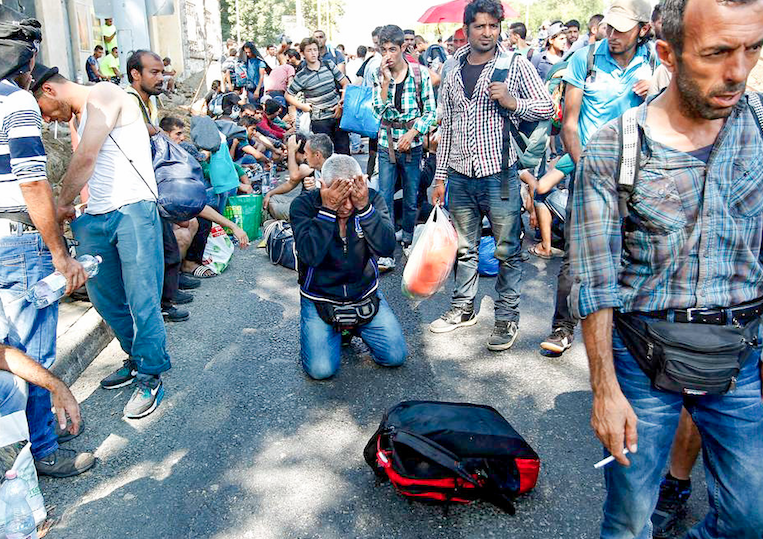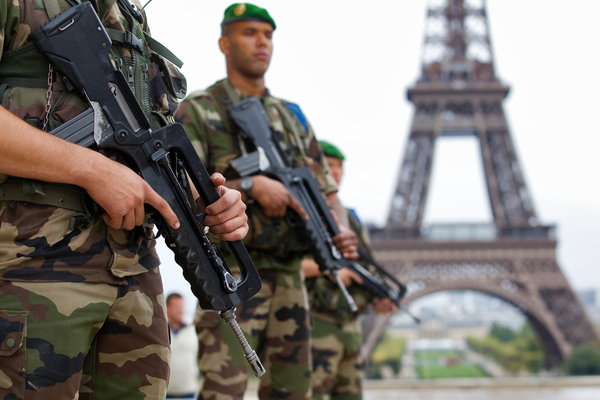The month of April, 2015 saw nearly 8000 migrants and refugees rescued in Italian waters. In just a single week, Italy rescued over 6000 migrants and refugees from the Mediterranean Sea. The week prior, another 1500 migrants were rescued while fleeing North Africa. On April 15, over 400 migrants died after the boat carrying them flipped while attempting to reach European shores. This brought the death toll for 2015 to 900, according to the United Nations High Commissioner for Refugees (UNHCR). In April 2014, the death toll was only 96.
Migrants and refugees fleeing North Africa via the Mediterranean represent a long-standing issue for European states. Migrants and refugees typically depart from Libya and Egypt, aiming for Italy and Greece due to their proximity. The International Organization for Migration (IOM) reports that a high frequency of migrants are coming from Gambia, Senegal, Somalia, Syria, Mali, and Eritrea respectively.
In 2013, the Italian Government established Operation Mare Nostrum (OMN) in order to address the high number of migrants. OMN consisted of naval and air units that regularly patrolled the Mediterranean. According to the IOM, Operation Mare Nostrum can be credited with the safe arrival of approximately 150,000 migrants from the Mediterranean, many of which likely would have died on the journey.
However, in October 2014, the €9m a month Operation Mare Nostrum was halted. At the time, many expressed their concerns that ending OMN would “put the lives of thousands of migrants and refugees attempting to reach Europe at risk.” Some, including British authorities, argued that OMN encouraged more migrants and refugees to attempt crossing the Mediterranean due to its success. However, many disagreed with this assessment. While OMN was replaced by Frontex’s scaled-down border operation titled Triton, Amnesty International officials noted that Operation Triton does “not begin to meet the needs of thousands of migrants and refugees, including those forced to flee war and persecution in the Middle East and Africa.”
The dramatic rise in numbers can be attributed to the rise in conflicts in the Middle East and African regions. The “pull factor” that many credited to Operation Mare Nostrum’s success seems to be a falsehood, with migrant numbers declining only a fraction which many attribute to bad weather in March. As noted, April’s numbers are steadily climbing as the weather becomes normalized and conflicts continue.
It is clear that Europe is in need of a reformed policy process, with capsizing boats, an increase of casualties, and smugglers continuing their business of transporting migrants. What migrants and refugees are getting,in the meantime, are mixed reactions and mixed messages. What is clear, however, is that the tragedy of April 15 has led to an increased number of calls to action for search and rescue operations in the Mediterranean. The UNHCR stated that the April 15 incident demonstrates how important “urgent action to prevent such tragedies in the future” is needed. Operation Triton, while serving as Mare Nostrum’s replacement, does not have the capacity to operate on the same level.
According to the UNHCR, specific proposals have been discussed with Europe officials, including the establishment of a European search and rescue operation, compensation for those who rescue migrants, resettlement, humanitarian visas, as well as a pilot program for Syrian refugees in Italy and Greece. Whether or not these pan out is difficult to say. Some European nations, the UK included, are hesitant with burden-sharing proposals for the placement of refugees across all 28 Europe member states. While other, smaller and less influential states, welcome the burden sharing argument due to the fact that they will likely not be overwhelmed if refugees are dispersed.
What is clear is that these migrants and refugees are going to keep coming, as many of them would rather risk drowning in the Mediterranean than face the dangers at home. With continued violence in Libya, a lack of proficient border control in Egypt and Tunisia, and persistent conflict in the Middle East and Africa, the problem is not going to be solved on the other side. European officials need to address this issue head on, lest the current pattern continue.





